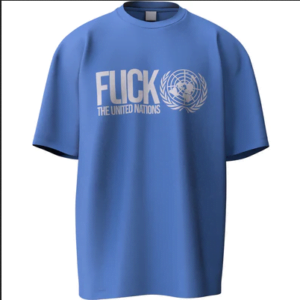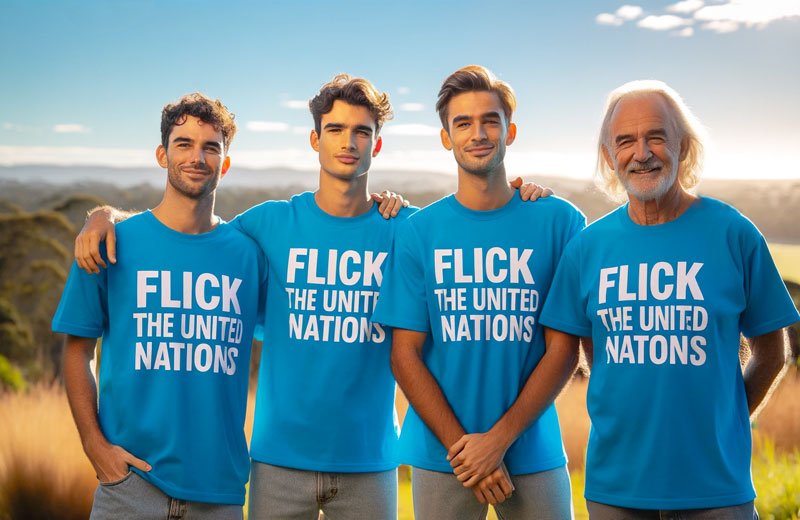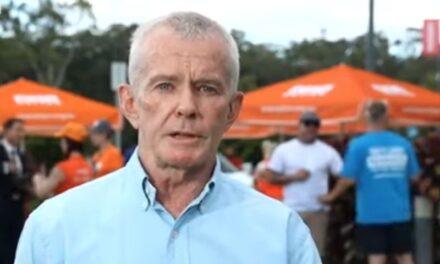In a sharp rebuke to mainstream media’s representation, One Nation called out Nine papers’ journalist Nick O’Malley for his portrayal of participants at the recent ‘Reckless Renewables’ protest held on the lawns of Australia’s Parliament House. The party criticized O’Malley’s report as biased and misinformed, particularly highlighting the coverage of attendees’ apparel and the broader narrative surrounding the event.
Reckless Renewables Protest
According to One Nation, the protest symbolized the frustration of many Australians with the surge in renewables energy projects, which they argue damages the landscape and leads to skyrocketing power prices.
The party says the crux of their concern lies not with the subject matter of the protests but with what they perceive as a lack of integrity, objectivity, and accuracy in journalism today.
Anti-UN, Anti WEF
 In his article, O’Malley described a scene where attendees, under a rainbow umbrella and wearing matching T-shirts, seemed to oppose the United Nations with a message that was misinterpreted. The shirts, which actually bear the slogan “FLICK THE UNITED NATIONS,” were mistakenly reported to contain an offensive term, a misunderstanding One Nation attributes to the journalist’s bias.
In his article, O’Malley described a scene where attendees, under a rainbow umbrella and wearing matching T-shirts, seemed to oppose the United Nations with a message that was misinterpreted. The shirts, which actually bear the slogan “FLICK THE UNITED NATIONS,” were mistakenly reported to contain an offensive term, a misunderstanding One Nation attributes to the journalist’s bias.
The party seized the opportunity to clarify the message on their merchandise and express their appreciation for the unintended publicity. One Nation‘s statement also thanked Dean and Sue Hall, attendees who were specifically mentioned for wearing the contentious shirts, underscoring their defiance against what the party sees as the encroachment of renewable energy projects and globalist agendas on Australian sovereignty and lifestyle.
One Nation’s merchandise, including “FLICK THE WHO” and “FLICK THE WEF” shirts, has reportedly found a substantial market among Australians who share the party’s disdain for international bodies and their influence on national policy.
No Media Correction Expected
Despite their critique, One Nation doubts any forthcoming correction from O’Malley, suggesting that the journalist’s priorities may lie elsewhere than in journalistic integrity or clarity.

Flick the United Nations Reckless Renewables protest. AI assisted image.



